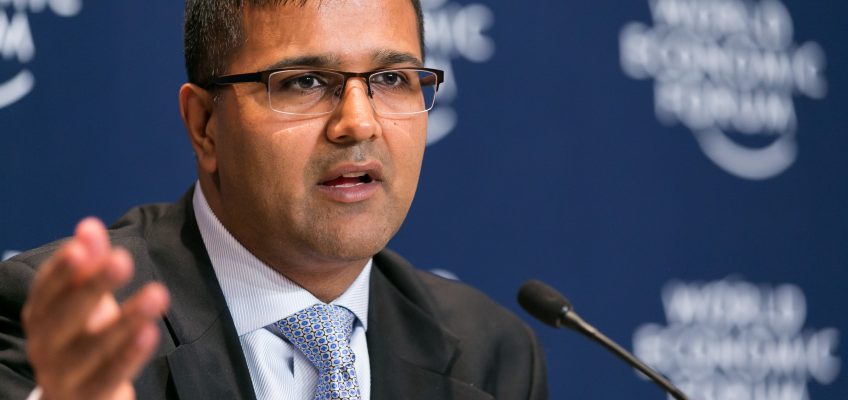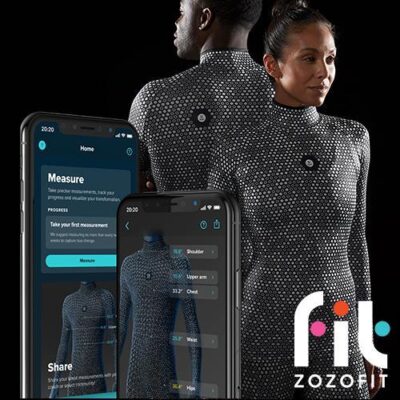Technology is key to tackling the global education and skills challenge of equipping young people for the future. But to get it right, we need to get back to basics.
In spite of the fact the EdTech market is predicted to reach $252 Billion by 2020 and that over $1 billion was invested in the sector in the US this year alone, many promising initiatives in the sector fail to make any real lasting impact. This is something that Vikas Pota is looking to change by putting education at the heart of the technology discussion.
VR is the most psychologically powerful medium in history, and Immersive technologies can help close the talent gap Click To TweetAfter eight years as CEO of the Varkey Foundation, Pota has now been appointed as Group Chief Executive of Tmrw Digital, Sunny Varkey’s new holding company which will oversee all his EdTech businesses and investments, as well as set up a research institute dedicated to finding ways of leveraging technology to democratize access to education.
“My role at the Foundation taught me how incredibly complex EdTech is. You have this fundamental conflict between a really innovative group of technology entrepreneurs and a schooling system that dates back to the first industrial revolution.”
Tmrw Digital is a business but its mission will still help to advance the broader societal impact of the Varkey Foundation. It has inherited a portfolio of EdTech investments, with five dedicated funds in Silicon Valley having funded between 400-500 EdTech start-ups so far.
“You don’t make a quick buck in EdTech. Everything we do has to be built on a foundation of sound educational research. Educating a child is a process that takes place over many years, so why do we expect EdTech to deliver learning outcomes instantly?”
The point he makes is a good one. Perhaps we need to come to terms with the fact that Education Technology is a much slower-turning wheel. In order to get initiatives in that space to succeed, you need long-term vision and commitment.
After eight years as CEO of the Varkey Foundation, Vikas Pota takes on the role of Group Chief Executive at Tmrw Digital, which will oversee Sunny Varkey’s EdTech businesses and investments Click To TweetHe demonstrated the effectiveness of this approach with his work at the foundation to raise the profile and status of teachers. In a celebrity-obsessed age, he managed to bring a host of high-profile figures – from actors and musicians to politicians, princes and even the Pope– to champion the cause of education through the Global Teacher Prize, which boasts a lavish Oscar-style ceremony where a $1 million prize is awarded to the world’s best teacher. In the space of a few years, the Dubai-based event has become known as the Nobel Prize of education, and put the spotlight on the importance of teaching, and the crisis in training and recruitment which is creating a global teacher shortage.
In order to meet the UN’s sustainable development goals, Governments need to recruit 69 million new teachers Click To Tweet“To meet the UN’s sustainable development goals, Governments need to recruit 69 million new teachers, but training quality educators is something that has eluded successive governments around the world. I can’t help but believe that technology has a key role to play if we’re to meet the sheer scale of the challenge of providing every child with access to a quality education.
“In all the conferences I’ve been to around the world, you always see policymakers, CEOs, tech entrepreneurs and investors, but how shortsighted is it that we don’t ask the teachers that are on the front line, delivering education to the next generation, to be part of those discussions?”
Pota is also very keen to learn more about how emerging technologies such as VR and AR can engage learners with experiences that they might not otherwise have been able to access.
As professor Jeremy Bailenson from Stanford University’s Virtual Human Interaction Lab says, “VR is the most psychologically powerful medium in history, and Immersive technologies can help close the talent gap, as almost any skill can be improved by virtual instruction. Research shows that our brains treat VR experiences in ways which are fundamentally similar to real ones. This opens up all sorts of interesting possibilities for teachers using this technology to enrich and deliver the curriculum, but also to provide students with access to places and experiences which would normally be beyond their reach due to financial, geographical or safety constraints.
Pota is also very keen to learn more about how emerging technologies such as VR and AR can engage learners Click To TweetYet as exciting as a technology might be, there are no guarantees that implementing it will automatically advance a pupil’s education. A 2015 OECD report on EdTech highlighted that countries which have invested heavily in information and communication technologies (ICT) for education have seen no noticeable improvement in their performances in PISA results for reading, mathematics or science. One of the most disappointing findings of the report is that the socio-economic divide between students is not narrowed by technology, and perhaps is even amplified.
“Teachers go through a rigorous process of pedagogical training for a good reason; You can’t walk in as an entrepreneur and change that by presuming to flash around the latest shiny gizmo. EdTech has to stand up to robust scrutiny of pedagogical and learning outcomes. That rigor is what we are looking for. We need to ensure we have a robust evaluation of how your product actually works in the classroom.”
The crux of the matter is that market research does not equate to educational research, and as long as the measures of success for EdTech remain the same as those for other tech sectors (such as user numbers or licencing/subscription/advertising profits) instead of learning outcomes, then their impact will be limited.
This new will encourage entrepreneurs to think about what it takes to shift educational outcomes Click To Tweet“This new institute we’re setting up will encourage entrepreneurs to think like that and infuse them with the understanding of what it takes to shift those educational outcomes. Robust research and evaluation is the missing link here.”
Teachers go through a rigorous process of pedagogical training for a good reason; You can’t walk in as an entrepreneur and change that by presuming to flash around the latest shiny gizmo Click To Tweet“We need to equip people with the skills of the future – Collaboration, creativity, leadership. Our unique advantage in achieving this is our network of schools, which presents the opportunity to implement these innovations directly and offer robust feedback that informs further product development. That will be very much a part of the support we offer the companies we choose to invest in.”
It will be interesting to see how Tmrw Digital will operate as a business while advancing Varkey’s mission of giving access to a quality education to every child. To Pota, however, the two goals are complementary, and although their success will be measured in terms of social impact and educational outcomes, he believes that it will finally lead to a profitable, sustainable, and scalable model for EdTech.
Alice Bonasio is a VR and Digital Transformation Consultant and Tech Trends’ Editor in Chief. She also regularly writes for Fast Company, Ars Technica, Quartz, Wired and others. Connect with her on LinkedIn and follow @alicebonasio on Twitter.









